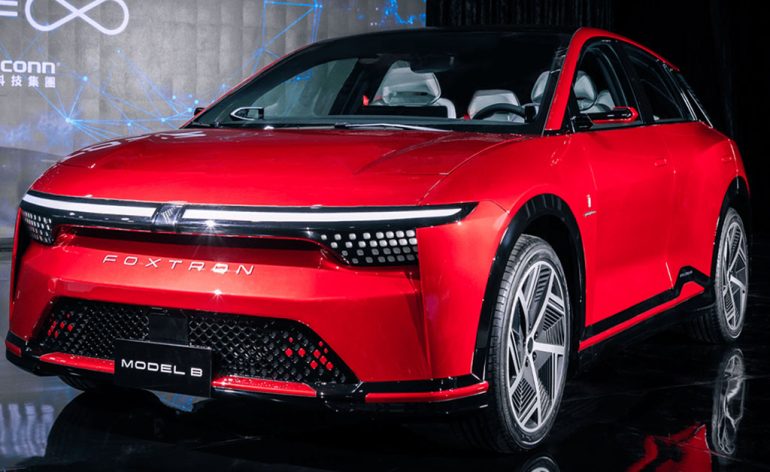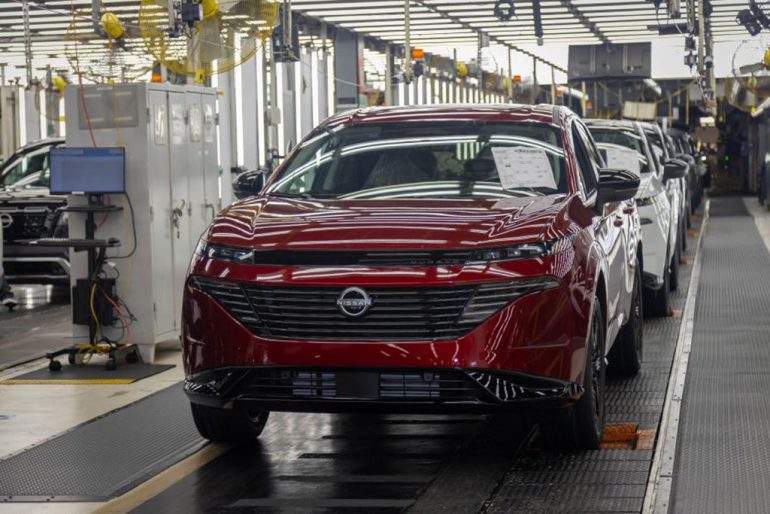What is Nissan Talking to iPhone Maker Foxconn About?


Nissan and Foxconn—two companies from vastly different industries—are once again talking, but this time the conversation has taken a new and unexpected turn. While previous talks hinted at deep collaboration or even an equity stake, the latest dialogue between the Japanese automaker and the Taiwanese tech manufacturing giant is far more pragmatic: Foxconn might soon be building its own electric vehicles (EVs) at a Nissan factory in Japan.
This potential move is centered around Nissan’s Oppama plant in Yokosuka, just south of Tokyo. Built in 1961, the Oppama plant has long been a key part of Nissan’s domestic production network. It features not just assembly lines, but also its own test track, R&D center, and port access. However, it’s now operating at just 40% capacity—far below its 240,000-vehicle annual capability—and that makes it a prime candidate for shutdown under Nissan’s aggressive cost-cutting and restructuring plan.
Nissan recently revealed its intent to shrink its global factory footprint from 17 to just 10 plants as part of a strategy to shave 500 billion yen (roughly $3.4 billion) off its operating costs by fiscal year 2026. While this doesn’t immediately impact U.S. operations, it’s part of a broader shift toward making Nissan leaner and more competitive, especially in the quickly evolving EV market.

Enter Foxconn, better known for assembling Apple’s iPhones than for making cars—yet it’s quickly becoming a serious player in the EV world. Since 2019, Foxconn has been pivoting into the automotive space, not just as a supplier but as a contract manufacturer and even a brand creator. It has developed its own EV platforms, launched the Foxtron EV brand (a joint venture with Yulon Motor), and is now seeking production space for its growing ambitions.
The revived discussions between Nissan and Foxconn aren’t about joint ventures or ownership stakes this time. According to reports from Nikkei, the idea now on the table is more straightforward: Foxconn would use Nissan’s underutilized Oppama plant to build its own electric vehicles, possibly including models for other clients or for Foxtron’s expanding lineup. It’s a move that could benefit both companies—Foxconn gains production capacity in a highly skilled and strategic location, while Nissan avoids the social and economic fallout of shuttering a major plant.
This potential arrangement comes just after Foxconn secured a deal with Mitsubishi—an alliance partner of Nissan—to develop an EV for markets like Australia and New Zealand, set to launch in 2026. Foxconn is also reportedly negotiating with Mitsubishi Fuso to supply electric buses for Japan, underlining its growing footprint in commercial and passenger EVs alike.
Stateside, Foxconn already owns the former GM-Lordstown facility in Ohio, where it hoped to build vehicles for Lordstown Motors and Fisker. Both of those startups eventually went bankrupt, but Foxconn has kept the plant alive by pivoting to build electric tractors for ag-tech startup Monarch. If the Nissan plant deal comes through, it could be Foxconn’s most significant step yet in scaling its automotive aspirations—on the home turf of one of Japan’s automotive icons.
It’s a fascinating twist in the shifting global auto industry, where tech giants and traditional automakers are increasingly crossing paths—and sometimes swapping roles. For Nissan, leveraging Foxconn’s manufacturing hunger might be a smart way to preserve jobs and make use of dormant capacity without compromising its core business. For Foxconn, this could be another puzzle piece falling into place in its EV expansion strategy.
Nothing is finalized yet, but these talks suggest that both companies are feeling the pressure to adapt—and may have more to gain by working together than going it alone.



